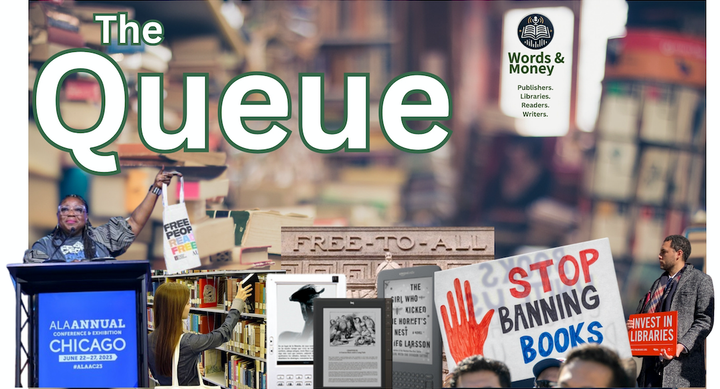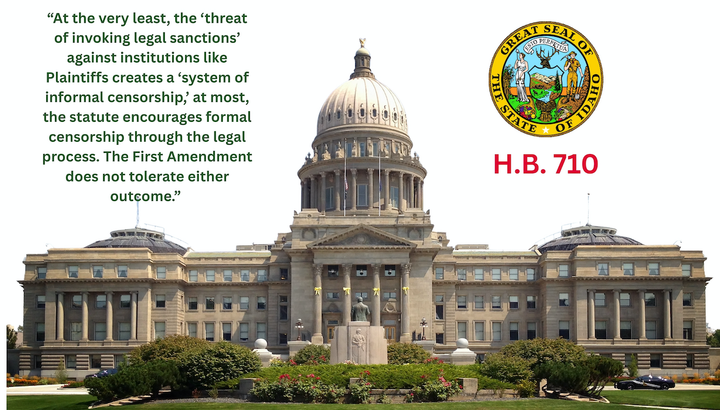The Queue: Library News for the Week Ending May 9, 2025
Among the week's headlines: the Senate votes to kill the FCC's popular WiFi hotspot program; Book Banners lose big in Texas school board elections; Ohio libraries pull a clean sweep at the ballot box; and Library Journal announces its 2025 Movers & Shakers.

You can add WiFi to the growing list of things Republicans say kids don't need.
In a party line vote on May 8, the Senate passed a resolution, introduced by Texas senator Ted Cruz, to overturn a much celebrated FCC program that allowed libraries and schools to tap federal e-rate funding to purchase and lend Wi-Fi hotspots. The resolution passed 50–38 along party lines, with 12 senators not voting.
The vote brings an FCC program called Learn Without Limits one step closer to ending. Notably, the program was first announced by FCC Chairwoman Jessica Rosenworcel at ALA’s 2023 Annual Conference. The program expanded the FCC's E-rate program, which offers discounts to libraries and schools on things like telecom and internet service, to cover mobile hotspots. In her remarks at ALA, Rosenworcel told librarians, who were enthusiastic supporters of the measure, that the pandemic showed us how "high-speed internet access is essential for everyone to have a fair shot at success."
So what was the problem? Too Expensive? Too Complicated? Not really. Turns out GOP leaders primary issue was that the rule change FCC officials voted through to create the program was illegal, because the law states that E-Rate applies to services inside library and school buildings. Although, in a statement Cruz attempted to cast the issue as one of online safety for kids.
In a release ALA reps noted that some 800 school and library districts had requested some 200,000 Wi-Fi hotspots to loan out this year to students and library patrons—a clear indication of the urgent demand for flexible, community-centered broadband solutions.
The resolution now heads to the House of Representatives, where there are slim hopes the measure can be defeated. "This disappointing vote doesn't need to become law if Congress considers how many constituents are benefiting and will benefit in the future from this program,” said ALA president Cindy Hohl, in a statement. “The enthusiasm for this vote was low. E-Rate, supported financially by the Universal Service Fund, is wildly popular."
Movers & Shakers
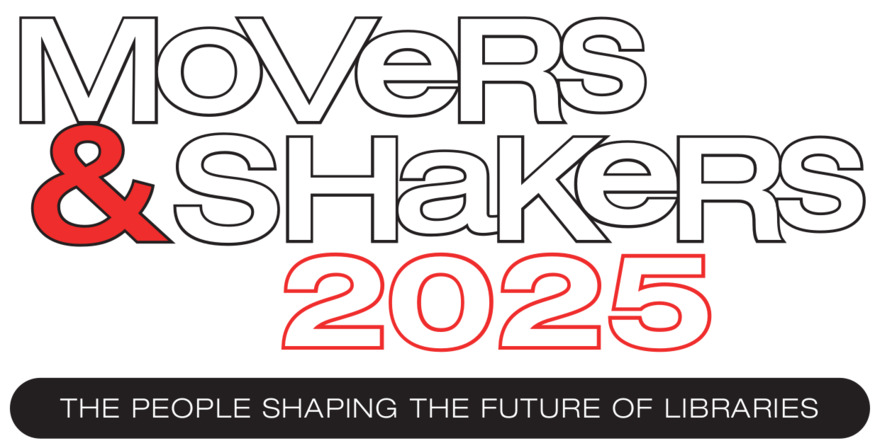
Congratulations to the Library Journal 2025 class of Movers & Shakers. Once again, LJ has recognized a sensational group that truly represents the range of important work librarians do in our communities.
"This year’s Advocates, Community Builders, Change Agents, Innovators, and Educators are teaching future teachers, raising up immigrant communities, showing college students their library’s benefits, standing up to anti-library legislation, helping their communities recover from climate-impact disasters, providing access for unhoused and incarcerated populations, and using comics to teach civic literacy—to name just a few," writes LJ executive editor Lisa Peet in her introduction.
The Firing of Carla Hayden

Also at Library Journal, the great Gary Price is assembling reaction to the big news of the week, the firing of Carla Hayden.
Texas Book Banners Lose Big at the Ballot Box
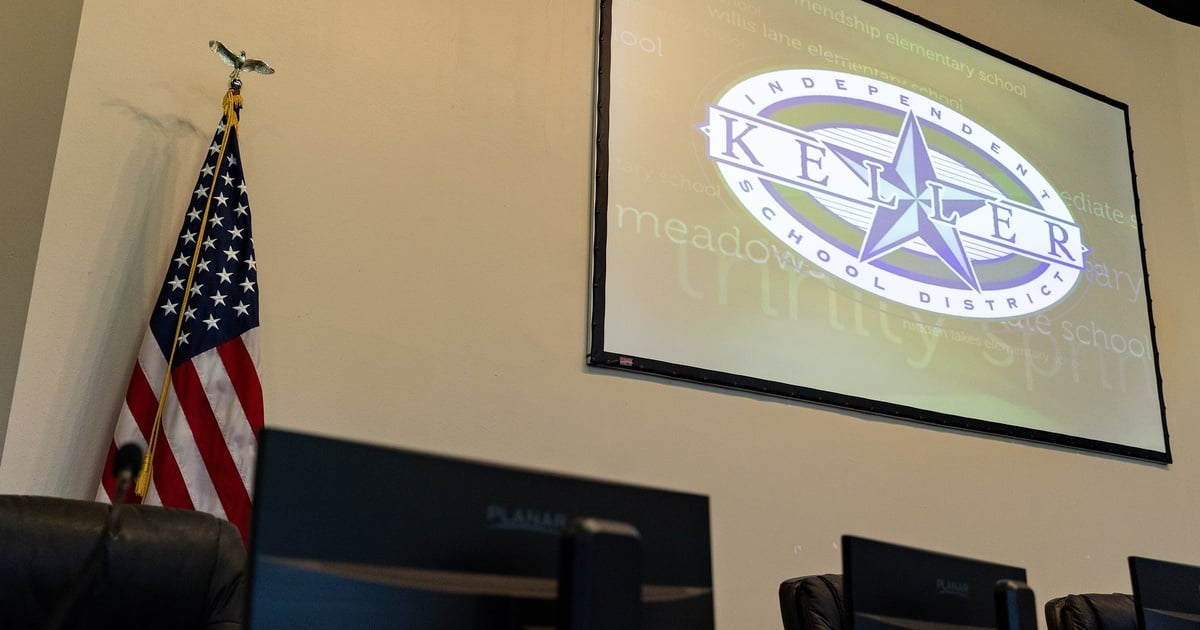
Is the right wing book banning movement starting to lose steam? The Texas Tribune reports that an array of conservative school board candidates across Texas were defeated in local school board elections last weekend.
"Saturday’s elections saw the defeat of numerous conservative school board trustees in the Tarrant County suburbs surrounding Fort Worth, the epicenter of the state’s recent culture war fights over how students should learn about race and gender. All seven school board candidates in contested races who were endorsed by the Tarrant County Republican Party lost their elections," the Tribune reports. "The sweeping losses for conservative school board hopefuls also served as an early sign of potential backlash to the nascent administration of President Donald Trump, ahead of a 2026 midterm in which a number of statewide offices will be on the ballot."
Ohio Libraries Run the Table on Election Day

While book banners were losing at the ballot box in Texas, The Ohio Capital Journal reports that libraries were winning big in the Buckeye State. All 13 library levies on Tuesday’s ballot in Ohio passed, the Journal reports, adding that none of the votes were even close, with voters agreeing to fund their libraries by "a 19-point margin" on average.
"The results come as the budget proposed by the Republican-controlled Ohio House would spend almost $91 million less on public libraries than the draft proposed by Republican Gov. Mike DeWine. In addition, the House budget would change library funding from a percentage of the state’s general-revenue fund to a fixed line item. The library council has said that would increase the possibility that at some point it could be eliminated altogether," the report notes.
“Public support is loud and clear,” said Michelle Francis, Executive Director of the Ohio Library Council, in a statement. “We hope state leaders recognize how much their constituents rely on library services.”
A Book Burner in Cleveland

Cleveland.com reports that a local man borrowed 100 books from the Cuyahoga County Public Library (CCPL) Beachwood Library, and burned them in a social media video.
"The man checked out 50 books on topics that included Jewish history, African-American history and LGBTQ education,” the report notes. “The following day, CCPL heard from the Princeton University Bridging Divides Initiative (PUBDI), a group that monitors and reports suspected hate crimes on social media. PUBDI informed CCPL that the man had posted a photo to a social media site April 3 that showed a car trunk full of books, with a caption relating to ‘cleansing’ the libraries.”
South Carolina Passes Utah in School Book Bans

PEN America reports that South Carolina is now the leading state for mandated book bans in K-12 public schools, surpassing Utah, after the state's board of education on May 6 voted to add 10 more books to the previous 12 titles banned throughout the state under the mechanism for statewide bans, Regulation 43-170.
"These banned titles largely originated from book challenges by a single parent in Beaufort County," PEN notes. "The books on the list include titles intended for young adult readers that address sex-related topics as well as LGBTQ+ characters. Of the 27 total books challenged at the state level (where 22 were banned and 5 were retained), 52% address sexual violence, 52% address mental health, and 48% address death and grief. Further, 51% have real people or characters of color and 30% have LGBTQ+ characters or people."
According to PEN America, South Carolina is one of three states with a mechanism for banning books in all state public schools, alongside Utah and Tennessee.
Arkansas Libraries Waiting on New Rules
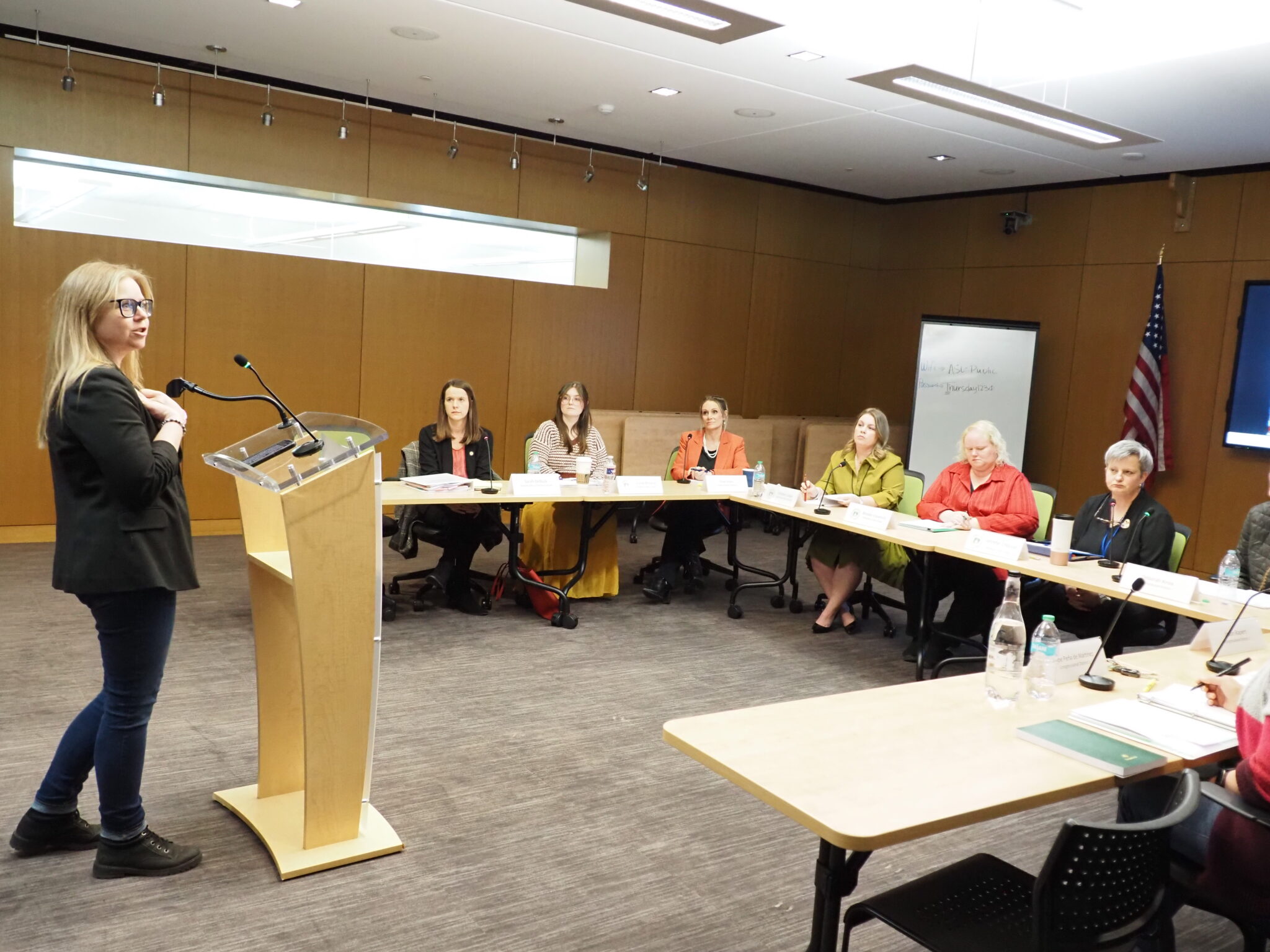
Tess Vrbin at the Arkansas Advocate has a piece this week on the uncertainty facing libraries as they await new funding rules from the state.
"As local library directors wait for their regular shares of state funding, some continue to await a long-delayed avenue for rural libraries to be eligible for more state funding," the report notes. "The original deadline for establishing those standards was July 1, 2024, the start of the current fiscal year."
What's Considered 'Sexually Explicit' in Alabama?
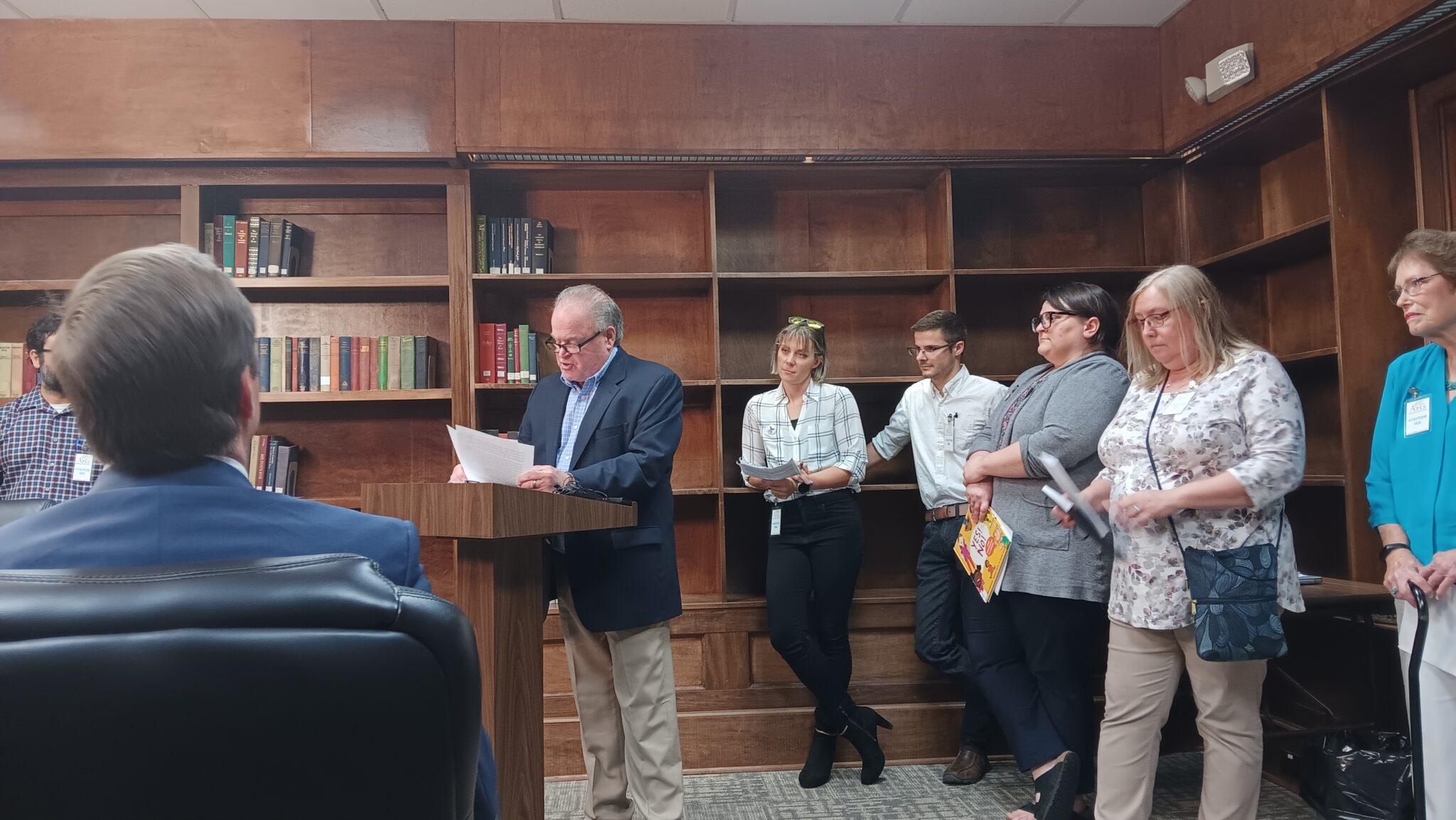
The Alabama Reflector reports that the state's Public Library Service Board this week adopted a definition of the term “sexually explicit” after library officials said the state's new rules governing inappropriate content were too vague.
"The new definition is taken from the state’s criminal code defining adult bookstores and adult movie houses. It includes material containing sexual intercourse between people of the same gender or opposite gender, sexual excitement and nudity," the article notes, adding that the move comes after APLS voted in March to suspend funding to the Fairhope Public Library amid complaints that the library was in violation of the APLS's new rules on sexual content.
Alabama to Crack Down on 'Gender Ideology'?

Meanwhile, the Alabama Daily News reports that the Alabama Public Library Service Board this week also considered a proposal to "deem reading material that encourages, promotes or contains positive portrayals of transgender procedures, gender ideology or the concept of more than two genders" inappropriate for children.
"The proposal was introduced by APLS Board member Amy Minton," the report notes, who "cited two executive orders signed by President Donald Trump, “Protecting Children from Chemical and Surgical Mutilation,” and “Defending Women from Gender Ideology Extremism and Restoring Biological Truth to the Federal Government,” which affirm U.S. policy to both oppose gender transition surgery for minors and to recognize only two sexes as determined at birth, respectively."
Following PRH Deal, Boom! Studios Changes Digital Terms

Word is circulating on social media that Boom! Studios is changing its digital terms for libraries in the wake of its acquisition by Big Five publishers Penguin Random House. A notice from Library Pass' all-you-can-read comics service Comics Plus, notes that PRH doesn't support the "unlimited access"model that Comics Plus offers, and thus all Boom! titles will be removed from the platform by May 30. In a post on Bluesky, Comics librarian Jack Phoenix decried the move. "Too often, publishers pay lip service about supporting libraries but screw us over when no one is looking. Email Boom @ contact@boom-studios and tell them you want them to stay on Comics Plus." While Boom! is leaving the platform, Comics Plus offers affordable access to unlimited access to dozens of "library friendly" comics publishers.
State Libraries in the Crosshairs

Leading off her weekly censorship news roundup for Book Riot, Kelly Jensen looks at the movement targeting state libraries.
"Targeting state libraries is also how a political cult can reinvent their purposes and bring them back in future bills," Jensen writes. "Indeed, there is a perfect opportunity here to take away something people like–a library–and then bring it back in service of administrative propaganda. Given the emphasis on how the IMLS will play a significant role in America 250, the scenario is nowhere near far-fetched. You want your state library back? Cool, we’ll give it to you, so long as it’s operated as a tool to whitewash American history and distribute mis- and dis- information about what is going on right now."
Oregon 'Freedom to Read' Bill Advances
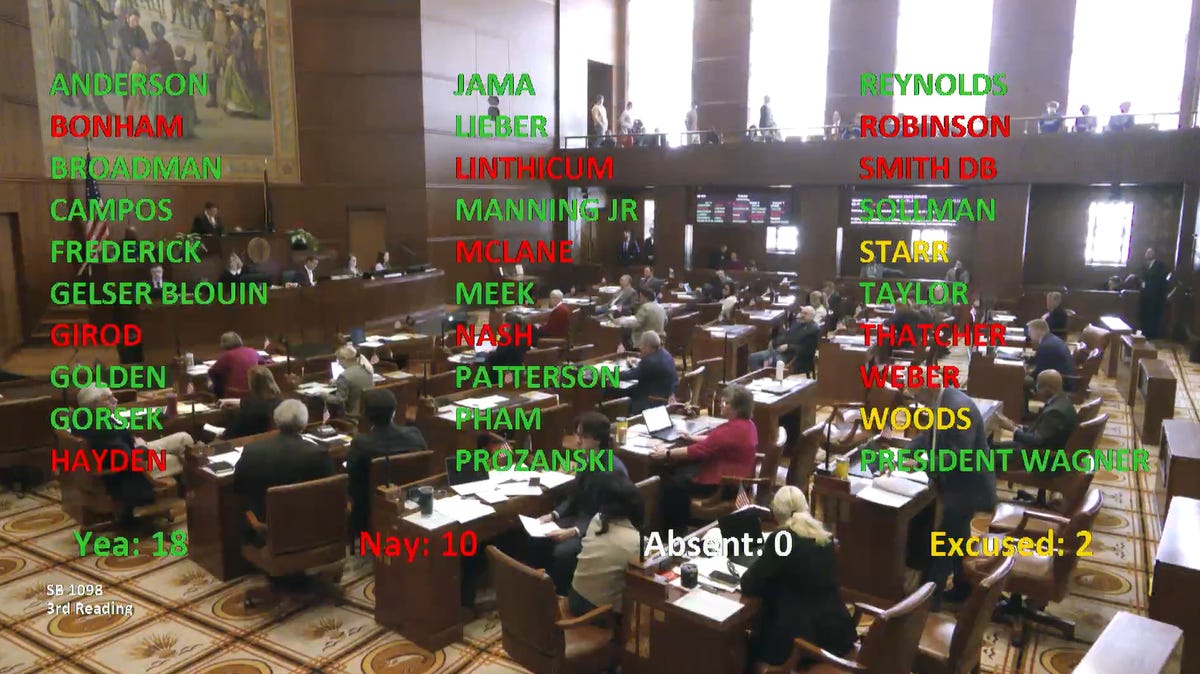
The Statesman Journal reports that the Oregon Senate this week has passed Senate Bill 1098, the state's 'Freedom to Read' bill. The bill now goes to the House for consideration.
"SB 1098 would require challenges for a book or specific material to be made in writing by someone connected directly to the school, either a parent, guardian or employee," the article notes. "Supporters include the Oregon School Employees Association, which represents 25,000 educators. In its testimony, the OSEA said library professionals have felt pressured to remove or limit book access preemptively to avoid conflict, adding stress to an already demanding job and placing additional strain on staff."
Libraries as Pillars of Democracy

Scientific American has great opinion piece this week on the importance of libraries in their communities in these politically divisive times.
"Defending public libraries against financial and censorship threats is necessary to preserve social cohesion, intellectual freedom, and the very foundations of democracy in vulnerable rural communities," writes Laura Backstrom, a professor of sociology at Florida Atlantic University whose research explores how politics and status influence parenting in rural towns and small cities. "In small towns, where social relationships and mutual reliance are important, the breakdown of trust and the intensification of division is particularly damaging. We need our libraries, and they need us."
And finally this week...

On the 100 year anniversary of the Schomburg Center for Research in Black Culture, our friends at Publishers Weekly have announced that Joy Bivins, director of the Schomburg Center for Research in Black Culture in New York, will give the opening keynote at the 2025 U.S. Book Show on June 3, at the New York Academy of Medicine in Harlem. "The multimedia keynote will mark the centennial of the Schomburg Center, a New York Public Library outpost and renowned cultural institution dedicated to preserving and promoting Black history and culture," the PW announcement notes.
Bivins joined the Schomburg in 2020 and has led the world renowned institution since 2021. She has also served as the chief curator of the International African American Museum, in Charleston, S.C., and as the director of curatorial affairs at the Chicago History Museum over her two-decade career. Bivins will be in conversation with Randy Winston, creative director for fiction at the Black List, a discovery platform for unproduced screenplays and manuscripts.
Tickets are available through the U.S. Book Show website and you can check out the event schedule and detailed panel descriptions here.














